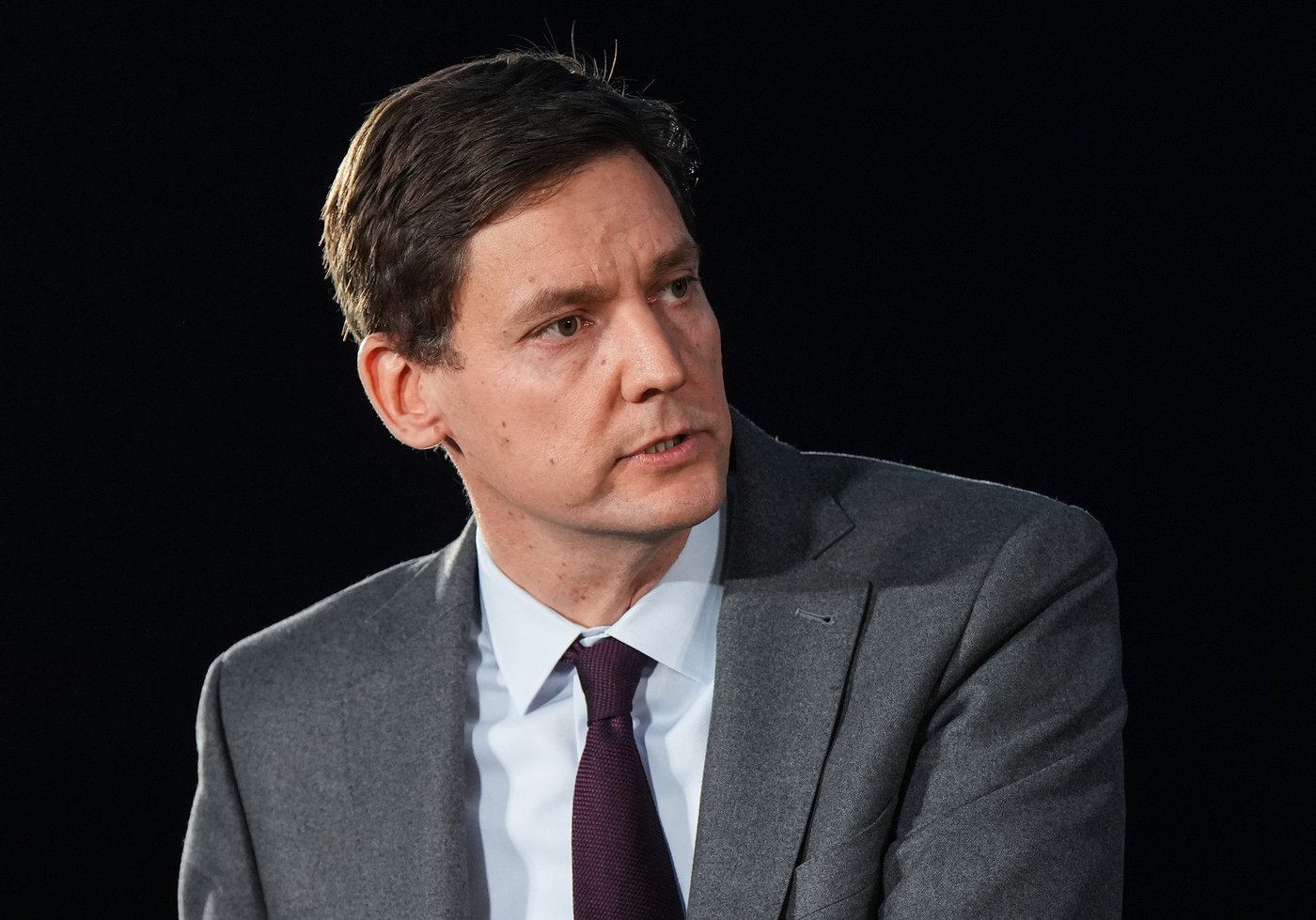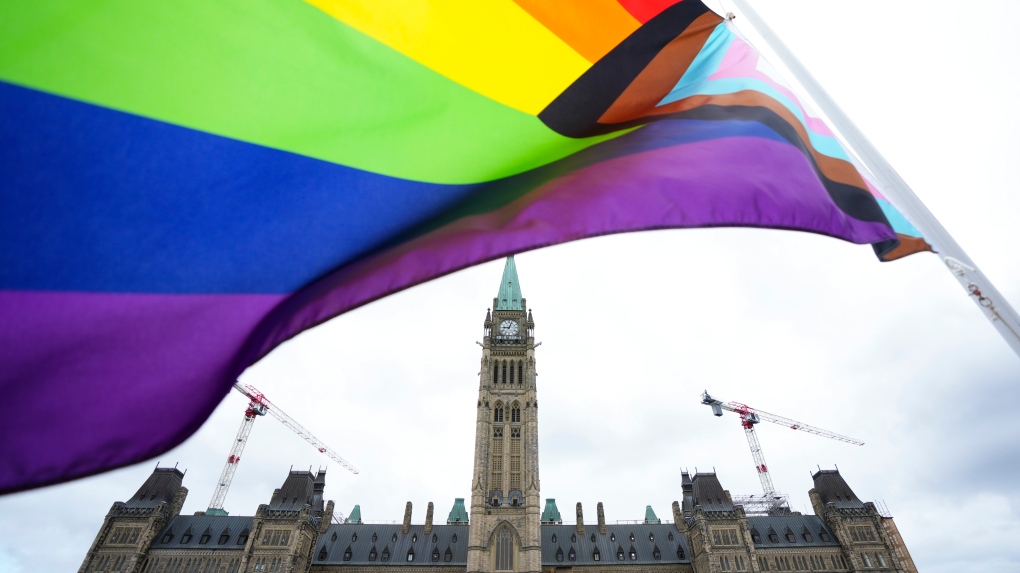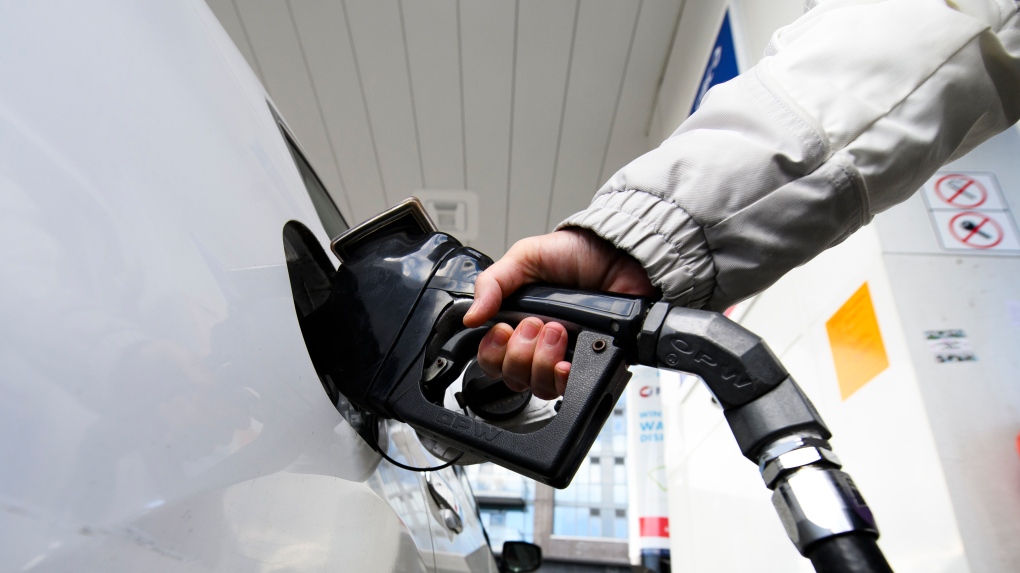News
B.C. finance minister replaced in Premier David Eby’s new-look cabinet

|
|
British Columbia Premier David Eby has unveiled a new-look cabinet that includes eight first-time ministers and removes Selina Robinson from the finance ministry.
Former forests minister Katrine Conroy takes over the finance portfolio, while Robinson moves to post-secondary education and future skills.
Robinson announced just last month that the NDP government had a surplus windfall of $5.7 billion dollars, allowing Eby to spend on his priorities of housing, health care and public safety.
The highest-profile appointment among the crop of newcomers goes to Niki Sharma, who takes over from Eby as attorney general.
Sharma, who was previously Parliamentary secretary for community development and non-profits, had tears in her eyes Wednesday as she received a standing ovation at the Government House ceremony, where the ministers were sworn in by Lt.-Gov. Janet Austin.
“Our cabinet represents the diversity of our province,” said Eby, who took over as premier from John Horgan on Nov. 18. “Together they are a strong team. They are going to take on the big challenges facing our province.”
Eby described Conroy as “rural tough,” and says he chose her for finance because he has worked with her for a decade.
“British Columbians want her on their side,” Eby said of Conroy, who represents Kootenay West in B.C.’s southeast.
He cited her as having a background in agriculture, adding “she’s a hunter and she is tough.”
Eby would not categorize Robinson as having been demoted and said she will have an important role in ensuring institutions prepare students for challenging economic times.
He also said Robinson would use her experience in the business and non-profit sectors to bring success to her new ministry.
Eby said he couldn’t be more excited about getting down to work, and sought to quell suggestions of an early election, ahead of the scheduled vote in October 2024.
“I don’t know how many times I can say it, I am committed to a fixed election date for B.C.,” he said.
Ravi Kahlon, who was co-chair of Eby’s leadership campaign, will take on the new Housing Ministry.
Bowinn Ma will be the minister of emergency management and climate readiness, while Rachna Singh, a former Parliamentary secretary, is elevated to cabinet as the education minister.
The other newcomers include Pam Alexis in agriculture, minister of state for child care Grace Lore, Jobs Minister Brenda Bailey, minister of state for trade Jagrup Brar, minister of state for workforce development Andrew Mercier, and minister of state for infrastructure and transit Dan Coulter.
Eby said his ministers were a strong team ready to take on big challenges.
“They’re accepting this responsibility at a time when we’re facing significant head winds. Global inflation is driving up costs of essentials for families, like groceries. Global economic uncertainty is raising anxiety, health care systems across Canada are under strain, and B.C. is no exception.”
Those keeping their jobs include Adrian Dix in health, George Heyman with environment, Mitzi Dean as the minister of children and family development, Rob Fleming in transport and Harry Bains in Labour.
Deputy premier Mike Farnworth also remains the solicitor general and minister in charge of public safety.
Exiting cabinet are George Chow who held the trade portfolio, Nicholas Simons from social development, and Katrina Chen from child care.
Chen released a statement on Tuesday saying she had asked not to be considered for cabinet as she concentrated on recovering from long-term trauma suffered because of gender-based violence, including as a child.
This report by The Canadian Press was first published Dec. 7, 2022.
News
Best in Canada: Jets Beat Canucks to Finish Season as Top Canadian Club – The Hockey News
[unable to retrieve full-text content]
Best in Canada: Jets Beat Canucks to Finish Season as Top Canadian Club The Hockey News




Source link
News
Health Canada sperm donation rules changing for gay men – CTV News


Health Canada will change its longstanding policy restricting gay and bisexual men from donating to sperm banks in Canada, CTV News has learned.
The federal health agency has adopted a revised directive removing the ban on gay, bisexual and other men who have sex with men, effective May 8.
The policy change would remove the current donor screening criteria, allowing men who have sex with men to legally donate sperm for the first time in more than 30 years, as part of the anonymous donation process.
This update comes after CTV News first reported last year that a gay man was taking the federal government to court, challenging the constitutionality of the policy on the basis that it violates the right to equality in the Charter of Rights and Freedoms.
According to an email Health Canada sent stakeholders informing them of the upcoming amendments to the federal directive, “sperm donors will instead be asked gender-neutral, sexual behaviour-based donor screening questions,” more in-line with the 2022 change made by Canadian Blood Services to its donation policy.
However, instead of entirely eradicating restrictions for gay and bisexual men, lawyer Gregory Ko – whose client, Aziz M., brought the case – cautioned that Health Canada will continue to bar donations from those who have had new or multiple partners in the last three months, based on rules regarding anal sex. CTV News has agreed to protect the full identity of Aziz M. out of concerns for his privacy.
Ko said while the update is an important milestone, his client intends to maintain his challenge against the Health Canada directive, “and the continued discrimination contained in this latest revision.”
“Based on our understanding of the science, there is no scientific justification for screening criteria that continues to discriminate on the basis of sexual activity and sexual orientation, since the testing and quarantine protocols already in place allow sperm banks to detect relevant infections and exclude such donations,” Ko said.
Currently, a Health Canada directive prohibits gay and bisexual men from donating sperm to a sperm bank for general use, unless they’ve been abstinent for three months or are donating to someone they know.
For example, it stops any gay man who is sexually active from donating, even if they are in a long-term monogamous relationship.
Under the “Safety of Sperm and Ova Regulation,” sperm banks operating in Canada must deem these prospective donors “unsuitable,” despite all donations being subject to screening, testing and a six-month quarantine before they can be used.
While the directive does not mention transgender or non-binary donors, the policy also applies to individuals who may not identify as male but would be categorized as men under the directive.
It’s a blanket policy that the Toronto man bringing the lawsuit said made him feel like a “second-class citizen,” and goes to the heart of the many barriers that exist for LGBTQ2S+ Canadians looking to have children.
When CTV News first reported on the lawsuit, Health Canada and various federal ministers said they would be “exploring” a policy change, citing the progress made on blood donation rules.
The update comes following “the consultations held in August 2023 and January 2024,” according to Health Canada.
This is a breaking news story, more to come…
News
Gas prices: Why drivers in Eastern Canada could pay more – CTV News


Drivers in Eastern Canada could see big increases in gas prices because of various factors, especially the higher cost of the summer blend, industry analysts say.
Patrick De Haan, head of petroleum analysis at fuel savings website GasBuddy in Chicago, predicts a big gas hike for the eastern portions of Canada including Ontario, Quebec, Newfoundland and Labrador, New Brunswick and Nova Scotia over the next several days, while some areas in the Maritimes have already seen the increases.
“Unfortunately, for … really a third of Canada, we’re likely to see a big jump in what (motorists) are seeing at the pump,” he said in a video interview with CTVNews.ca. “Gas prices could rise in excess of 10 cents a litre. All of that having to do with yesterday’s switchover to summer gasoline.”
Gas prices may continue to increase for the next week or two, De Haan said. “But I think the end is near for the seasonal increases and we should start to see prices decreasing potentially by May (long weekend).”
Dan McTeague, president of Canadians for Affordable Energy, also forecasts gas price hikes.
Ontario and Quebec will see a 14-cent-per-litre increase overnight Thursday, he said on Wednesday. He predicts the price per litre will rise to $1.79 in cities across Ontario, the highest since Aug. 2, 2022. In Quebec, he expects the price per litre will increase to $1.88.
McTeague attributes this week’s increase to the higher cost of summer blended gasoline.
De Haan, meanwhile, observed the following changes in prices across Canada compared to a week ago:
- Prices in Saskatchewan are flat;
- Manitoba prices are up about a half a penny per litre;
- Alberta is down seven-tenths of a penny per litre;
- P.E.I. is up about 1.2 cents a litre;
- B.C. is up about 2.5 cents a litre;
- Nova Scotia is up three cents a litre;
- Quebec is up 3.5 cents a litre;
- Ontario is up 4.5 cents a litre;
- New Brunswick is up five cents a litre;
- Newfoundland is up seven cents a litre.
Factors behind spikes
“Some gas stations have already raised their price, in essence, but some others may not for the next day or two,” De Haan said. “So over the next several days, the averages will continue to rise as more stations raise their price. … Most of the increase is happening right now in the eastern portions of Canada.”
The summer gas switch will have “just a one-time impact” on gas prices, De Haan said.
More drivers are on the road, creating rising demand for gas as temperatures warm up, and refiners are wrapping up maintenance ahead of the start of the summer driving season. “While they do that maintenance, they’re generally not able to supply as much gasoline into the market,” De Haan explained.
Despite tensions between Iran and Israel, the recent attack has had “little impact” on the price of oil, De Haan said.
“Last week, oil prices did climb to their highest level (in) six months as Iran suggested it was going to attack Israel,” he said. “Now that those attacks have happened and they largely have been unsuccessful, the price of oil is actually declining.”
Third major spike in 2024
Michael Manjuris, professor and chair of global management studies at Toronto Metropolitan University, said the new gas price increase would be the third major spike across Canada since the start of the year.
One factor is the price of crude oil worldwide has risen 15 per cent since Jan. 1, Manjuris said.
The federal carbon tax increase of about 3.3 cents per litre on April 1 is also another reason for the big jolts in gas prices, he added.
Although the switch to summer blend fuels typically happens every year, Manjuris said, it will be more painful economically because it’s on top of the two other major increases this year. “This increase now will cause the overall price of gasoline to be very high,” he said in a video interview with CTVNews.ca. “We haven’t seen these kinds of prices since 2022.”
Manjuris believes gas prices will continue to rise through the summer as global demand for oil begins to grow. “That’s because we’re seeing increased economic activity in China, in the United States and in Europe,” he explained. “When those things all come together, price of crude oil starts to go up. … So I’m predicting that because of demand increasing, price of gasoline in Canada will also go up in the summer months. I’m going to suggest three to five cents a litre will be the peak before it starts to come back down.”
Regional differences
The West Coast and Prairies won’t have any gas price hikes coming soon because they already transitioned to summer gasoline, De Haan said. “So this is something associated with the switchover, which happens last in the eastern parts of Canada,” he explained.
In addition, he said regions have “subtle differences” in their supplies of gasoline.
“Supplies of winter gasoline in the eastern portions of Canada was rather lavish and so discounts were significant,” he said. “But now that the eastern part of Canada is rolling over to relatively tight supplies of summer gasoline, this is something much more impactful. That is other areas of Canada did roll over to summer gasoline, but they did not have necessarily the big discounts that would associate with the big price swing that we’re seeing.”
With files from CP24.com Journalist Codi Wilson
-



 Science10 hours ago
Science10 hours agoJeremy Hansen – The Canadian Encyclopedia
-



 Investment10 hours ago
Investment10 hours agoUK Mulls New Curbs on Outbound Investment Over Security Risks – BNN Bloomberg
-



 Tech9 hours ago
Tech9 hours agoSave $700 Off This 4K Projector at Amazon While You Still Can – CNET
-



 Tech8 hours ago
Tech8 hours ago'Kingdom Come: Deliverance II' Revealed In Epic New Trailer And It Looks Incredible – Forbes
-



 Sports8 hours ago
Sports8 hours agoAuston Matthews denied 70th goal as depleted Leafs lose last regular-season game – Toronto Sun
-
Real eState9 hours ago
Sick of Your Blue State? These Real Estate Agents Have Just the Place for You. – The New York Times
-



 Health23 hours ago
Health23 hours agoSupervised consumption sites urgently needed, says study – Sudbury.com
-
News23 hours ago
Canada's 2024 budget announces 'halal mortgages'. Here's what to know – National Post





